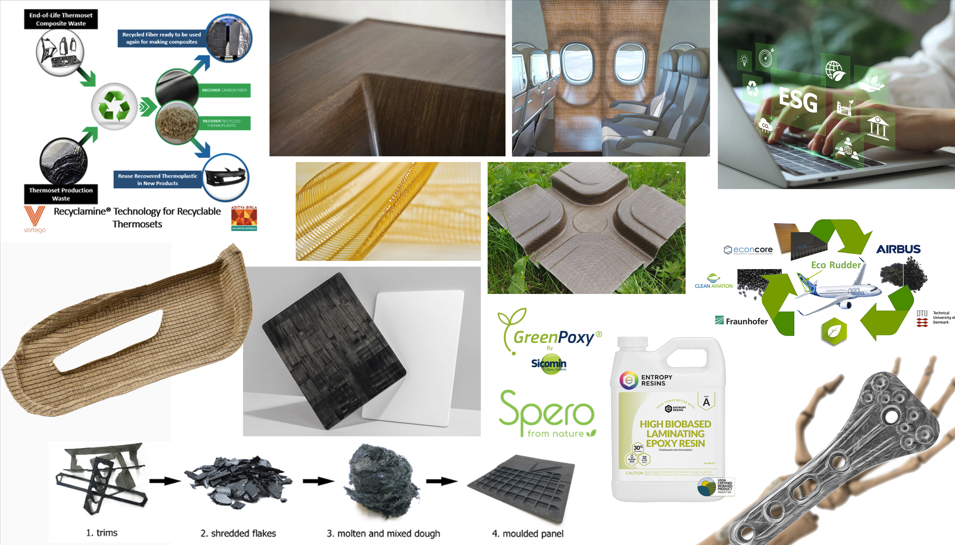The composites industry is increasingly recognizing the imperative of sustainability in its operations. As demand for lightweight and durable materials rises across various sectors, such as automotive, aerospace, and construction, there is a growing awareness of the environmental impact associated with traditional composites manufacturing. To address this, companies are striving to develop more eco-friendly alternatives by incorporating recycling bio-based materials and digital/more efficient systems in their production methods. This shift towards sustainable composites not only reduces the industry's carbon footprint but also promotes circular economy principles — extending the lifespan of materials and minimizing waste.

The composites industry, like many other manufacturing sectors, has been increasingly focused on sustainability in recent years. Some key topics to address include:
- Recycling Processes & Materials: There has been a growing emphasis on finding ways to recycle composite materials and products. This includes developing processes to recover and repurpose composite materials, reducing waste, and extending the lifespan of composites.
- Biomaterials: Researchers and manufacturers have been working to develop more environmentally friendly resins and reinforcement materials, such as bio-based resins and recycled fibers.
- Digitization: Digitization in composites manufacturing refers to the integration of digital technologies and data-driven processes into various stages of the composites production and supply chain. This transformation has the potential to improve efficiency, quality, and sustainability in the manufacturing of composite materials and products.
- Lifecycle Analysis: Assessing the environmental impact of composites throughout their entire lifecycle has gained importance. This involves considering factors like raw material extraction, manufacturing, transportation, product use, and end-of-life disposal.
